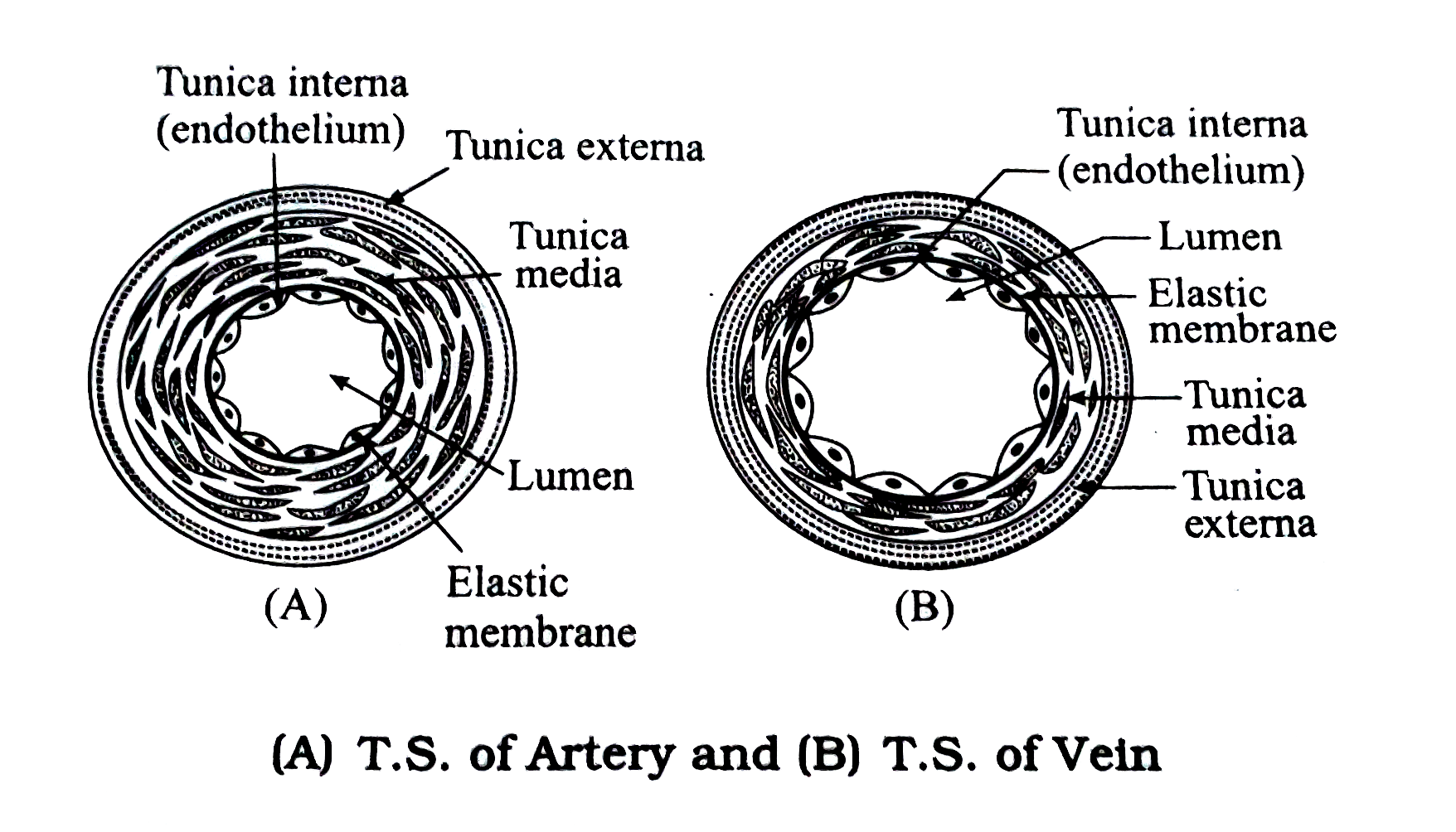Arteries are
A
Thin-walled and blood flows under diminished pressure
B
Thick-walled and blood flows under high pressure
C
Thin-walled and blood flows under high pressure
D
Thick-walled and blood flows under diminished pressure
Video Solution
Text Solution
The correct Answer is:B
Arteries are thick walled carrying oxygenated blood from heart to various parts of body at high pressure.
|
Topper's Solved these Questions
Similar Questions
Knowledge Check
Assertion (A): Valves are present in the arteries.
Reason (R): Arteries carry oxygenated blood from heart to different body parts except pulmonary artery.ABoth A and R are true and R is the correct explanation of A.BBoth A and R are true but R is NOT the correct explanation of A.CA is true but R is false.DA is false and R is true.Renal arteries ar formed by
AVentral aortaBDorsal aortaCInferior venacavaDAortic archHardening of the arteries due to deposition of cholesterol on arterial wall is termed as:
Acardiac arrestBblood pressureCarteriosclerosisDrheumatic heart
tunica interna of arteries and veins is composed of
View SolutionPH of blood in arteries and veins is
View SolutionNo. of renal arteries and veins in humans respectively
View SolutionThe main difference in the structure of arteries and veins is in
View SolutionHardening of the arteries due to deposition of cholesterol on arterial wall is termed as:
View Solution

